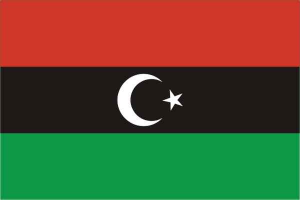Language/Libyan-arabic/Vocabulary/Feelings-and-Emotions
Hi Libyan Arabic learners! 😊
In this lesson, we will focus on feelings and emotions vocabulary. Understanding human emotions is a fundamental aspect of communication, including speaking Libyan Arabic. Using the right words to describe how you feel in a stressful or pleasant situation can help the listener understand what you are going through. So let’s dive into some useful words and phrases to express our emotions in Libyan Arabic. Don’t forget to use Find native speakers and ask them any questions!
Basic Vocabulary[edit | edit source]
Let’s start with the basics. The following words and phrases are common and easy to learn.
| Libyan Arabic | Pronunciation | English |
|---|---|---|
| مَرحَبًا | marhabaan | Hello |
| كيف حالك؟ | kif haalik? | How are you? |
| أنا جيد، شُكرًا | ana jayyid, shukran | I'm good, thank you |
| أنا سَعيد | ana sa'eed | I'm happy |
| أنا حَزِين | ana hazyyn | I'm sad |
| أنا مُتَضَايِق | ana mutadhaa'iq | I'm stressed |
| أنا مُتَعَب | ana muta'ab | I'm tired |
| أنا مُتحَمِّس | ana mutahammis | I'm excited |
Expressing Strong Emotions[edit | edit source]
Sometimes, we feel strong emotions that we need to express. The following words can help you describe your feelings more accurately.
Anger and Frustration[edit | edit source]
When you are angry or frustrated, it’s important to express yourself clearly and calmly. Here are some words to help you do that.
| Libyan Arabic | Pronunciation | English |
|---|---|---|
| أنا غاضِب | ana ghaadhib | I'm angry |
| أنا مُتَضَايِق | ana mutadhaa'iq | I'm frustrated |
| ما هذا الأمر المُزعِج؟ | ma hadha al'amr almuz'iij? | What's this annoying thing? |
| لِماذا تَفعَل ذلك؟ | limaadha taf'al dhalik? | Why are you doing that? |
| هَدِّئ نَفسَك | haddi' nafsak | Calm down |
Happiness and Excitement[edit | edit source]
When you are happy or excited, you may want to express your emotions with enthusiasm. These words can help you do that.
| Libyan Arabic | Pronunciation | English |
|---|---|---|
| أنا سَعيد | ana sa'eed | I'm happy |
| أنا مُتحَمِّس | ana mutahammis | I'm excited |
| يا لَهُوووووووووون | yaa lahoooown! | Wow! |
| هذا شَيءٌ رائِع | hadha shay'un raa'i' | This is amazing |
Sadness and Disappointment[edit | edit source]
When you are feeling sad or disappointed, it can be difficult to express yourself. These words may help you describe your feelings.
| Libyan Arabic | Pronunciation | English |
|---|---|---|
| أنا حَزِين | ana hazyyn | I'm sad |
| أنا مُتأسِف | ana mutaasif | I'm sorry |
| أشعُر باليَأس | ash'ur bialya's | I feel discouraged |
| لا شَيء يَسعُدُني اليَوم | la shay'un yas'uduni alyawm | Nothing is making me happy today |
Example Dialogue[edit | edit source]
Here is an example dialogue to help you see these words in context. The English translation is provided for each sentence.
- Person 1: أهلاً! كيف حَالُك اليَوم؟ (Hello, how are you today?)
- Person 2: أنا حَزِين. فَجَأةً فَقدتُ هاتِفي. (I'm sad. I suddenly lost my phone.)
- Person 1: أنا مُتَعَب من العَمَل. (I'm tired from work.)
- Person 2: أنا مُتحَمِّس لرحلةٍ قادِمةٍ. (I'm excited for an upcoming trip.)
Culture and Interesting Facts[edit | edit source]
In Libya, people tend to use more body language and facial expressions than words to express themselves, especially when it comes to emotions. It’s common to use hand gestures, like shaking your head, raising your eyebrows or shrugging your shoulders, to convey your feelings. Also, it’s worth noting that in Libyan culture, it's not always appropriate to show strong emotions in public.
The Libyan Arabic language has been influenced by various languages, including Arabic, Berber, Turkish, and Italian. Unsurprisingly, this has led to a diversity of vocabulary and grammar structures that make it a unique language. Learning Libyan Arabic can help you appreciate the rich culture and history of the country.
Conclusion[edit | edit source]
We hope you found this lesson helpful in developing your knowledge of Libyan Arabic vocabulary for feelings and emotions. Don't forget to practice and use these words in your everyday conversations to become more fluent. To improve your Libyan Arabic Vocabulary, you can also use the Polyglot Club website. Find native speakers and ask them any questions!
➡ If you have any questions, please ask them in the comments section below.
➡ Feel free to edit this wiki page if you think it can be improved. 😎
Sources[edit | edit source]
Excellent job on conquering this lesson! Consider delving into these related pages: How to say Good Bye? & Education.

